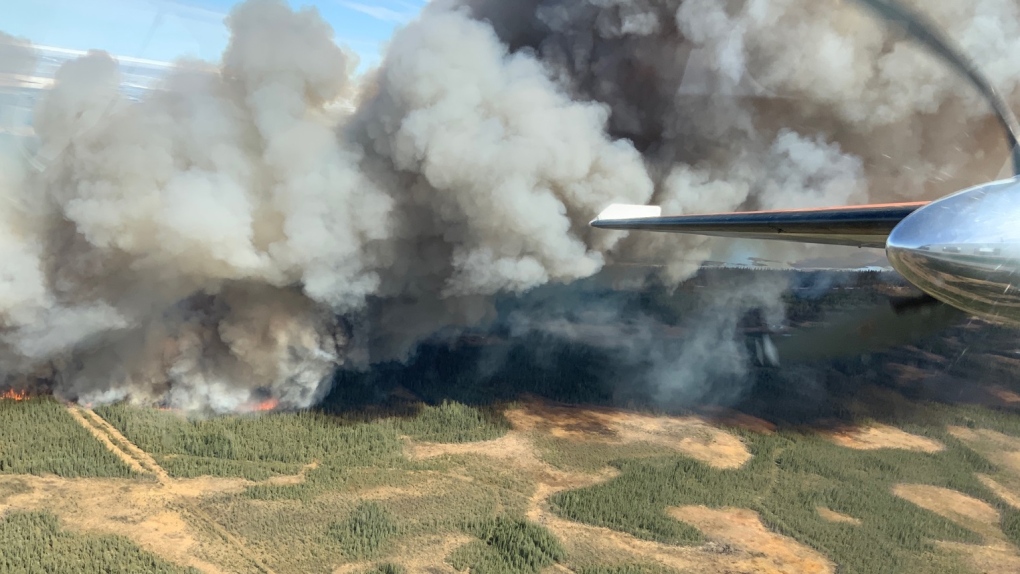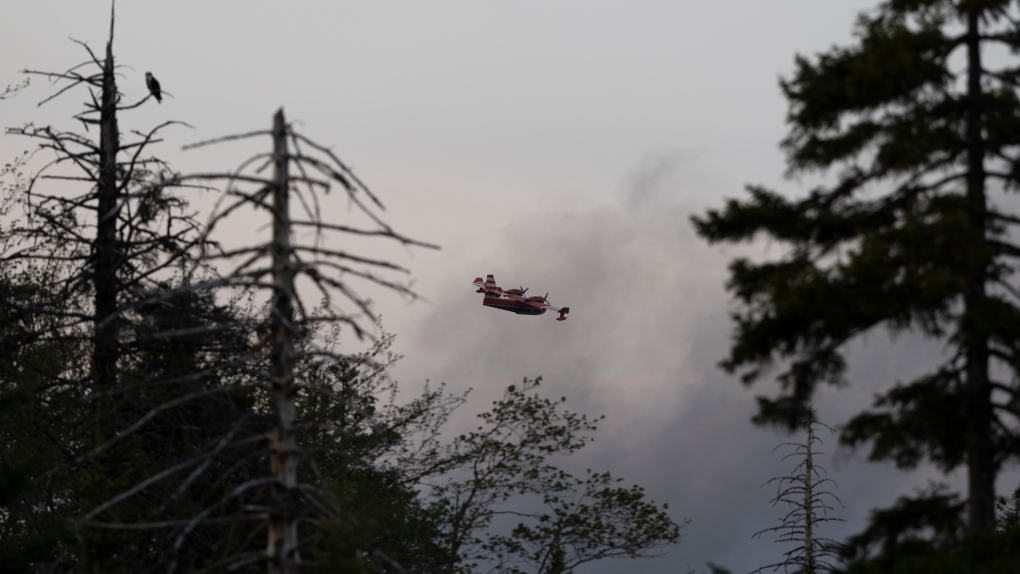It’s a wildfire season that’s on track to being the worst in Canadian history.
To date, the wrath of wildfires has been felt in nearly every province and territory. They’ve burned about 4.4 million hectares, roughly 17 times the annual average of the past decade, forced the evacuations of tens of thousands of people and led to poor air quality in major cities in Canada and the United States.
And matters are expected to get worse.
The federal government has said warm and dry conditions are forecast to persist through to the end of the summer, leading to increased wildfire risk in most of Canada.
By 2050, the government projects the amount of forest burned by wildfire will double due to climate change, which is causing longer wildfire seasons, more extreme weather conditions and increased droughts.
Despite the alarming facts and figures, some experts say Canada is far more reactive than it is proactive when it comes to wildfires and they’re pushing for a national campaign on wildfire education to better prepare for the future.
"That would actually be at the very top of the list because we know people will act when given that guidance and it's the most bang for the buck you can possibly get by far," Blair Feltmate, head of the University of Waterloo’s Intact Centre on Climate Adaptation, told CTVNews.ca.
Ken McMullen, president of the Canadian Association of Fire Chiefs, said educating Canadians on how to stay protected from forest fires and prevent them would go a long way.
"I'm fully supportive and I think the entire Canadian fire service is going to be supportive of any sort of preventative type measures that take place," he told CTVNews.ca in a phone interview.
"When we think about a national campaign for the prevention and education of wildfires, it benefits all of us."
 A view of a wildfire over Hay River, Northwest Territories from an air tanker is shown in a May 14, 2023 handout photo. THE CANADIAN PRESS/HO-Northwest Territories Environment and Natural Resources
A view of a wildfire over Hay River, Northwest Territories from an air tanker is shown in a May 14, 2023 handout photo. THE CANADIAN PRESS/HO-Northwest Territories Environment and Natural Resources
The "biggest problem by far," Feltmate said, is that many Canadians do not understand the urgency with which they need to act to prevent and prepare for extreme flooding, extreme heat and wildfires.
"The overwhelming limitation to forward movement and preparedness for climate change and extreme weather risk is a lack of sense of appreciation for the need to act with urgency," he said in a phone interview.
McMullen agreed.
"The unfortunate reality is we're seeing more of them. Whether we want to learn, whether we want to be prepared, the circumstances are almost forcing us to learn quicker and more rapidly in response to these wildfires. There's still a lot to be done," he said.
But what would a national campaign on wildfire education entail?
McMullen said it would be beneficial to teach children from a young age in schools about what to do before, during and after a forest fire, complementing the existing fire prevention tips that they’re being taught.
Meanwhile, he said all levels of governments should teach residents what being prepared in the event of a wildfire looks like, including having a 72-hour emergency kit and knowing what to do when your community goes on evacuation notice.
Some people don’t grasp the dangers of wildfires until they’re actually faced with them head on, he noted, such as in cities like Toronto and Ottawa that experienced poor air quality as a result of wildfire smoke that spread there from elsewhere in Ontario and Quebec.
He suggested knowledge sharing between provinces and territories, especially those that are used to seeing wildfires like Alberta and British Columbia, so that people across the country are more well equipped to deal with them.
"As Canadians, we're probably more so on the (reactive) side and less on the proactive side," McMullen said.
“And it's a bit of that notion of, ‘It's not going to happen to me.’ And what we're seeing in Canada right now with the amount of fires that are occurring, the size of those fires and the breadth for which they're spread across this country.” A water bomber plane flies through heavy smoke as an out-of-control wildfire in a suburban community outside of Halifax quickly spread, engulfing multiple homes and forcing the evacuation of local residents on Sunday May 28, 2023.THE CANADIAN PRESS/Darren Calabrese
A water bomber plane flies through heavy smoke as an out-of-control wildfire in a suburban community outside of Halifax quickly spread, engulfing multiple homes and forcing the evacuation of local residents on Sunday May 28, 2023.THE CANADIAN PRESS/Darren Calabrese
Canadians also need to learn how to protect themselves from the health impacts of wildfire smoke, said Dr. Joe Vipond, an emergency physician, co-founder of Masks for Canada and past president of the Canadian Association of Physicians for the Environment.
“The worst component of that (smoke) is something called particulate matter 2.5—the small particles get into your lungs and into your bloodstream and have pretty significant health impacts,” Vipond explained in a phone interview.
“It's like essentially smoking cigarettes while you're outside.”
Vipond said education should include what people should do when there’s wildfire smoke, such as avoiding going outside when the air quality is poor, wearing a well-fitted mask—such as a K95 or N95 mask—if they have to be outdoors when it’s smoky, using portable HEPA filters indoors and running a furnace fan with a high-quality furnace filter to clear out smoke from your home.
Teaching people about how climate change is linked to wildfires is important, too, Feltmate said, noting that many people don’t understand or don’t draw the connection.
"Are elements of carelessness in society affecting the occurrences of these fires? The answer is yes. But superimposed on that is the fact that we have hot, dry conditions over extended periods of time that create the environment for the fires to be more severe in nature," he said.
Vipond echoed that remark. He said more action needs to be taken to stop the root causes of climate change, such as burning fossil fuels, which the United Nations says accounts for more than 75 per cent of global greenhouse gas emissions and nearly 90 per cent of all carbon dioxide emissions.
“This is incontrovertible evidence of an increasingly dangerous climate and this means that we are in an emergency and unless we stop … burning fossil fuels, this is going to get worse and worse every year,” Vipond said.
Natural Resources Canada told CTVNews.ca in an emailed statement the federal government is launching a Wildfire Resilient Futures Initiative.
The federal department said the initiative will enhance the FireSmart Canada program, build wildland fire knowledge through research, pilot and demonstration projects on fire risk reduction measures and establish a centre to help transform wildland fire management in Canada and internationally “through innovation, knowledge exchange and supporting Indigenous fire stewardship.”
For now, McMullen encourages Canadians to follow the FireSmart program in order to protect their properties from wildland fires, prepare a 72-hour emergency kit and respect fire bans.
"We cannot afford any more fires — We have simply run out of people. And we need all of you to quote unquote be volunteer firefighters and you can do that from the prevention side and not have fires begin in the first place."
The federal government did not immediately respond to a request for comment.







































